You have to take the rough with the smoothie in life – and the past two years have been particularly rough. But are things finally looking up, asks Anna-Marie Julyan
No other category has taken a battering quite so severe as the storm that hit juices and smoothies. After two years of falling value and volume sales, miserable summers and soaring input costs caused by poor fruit harvests and the weak pound, the carnage is manifest.
Sales of juices and smoothies have fallen by £114m in the past two years from £1.82bn to £1.71bn and the £66m decline in 2009 suggests the problem has actually become more pronounced [all figures IRI 52w/e 23 January 2010 unless otherwise stated]. Volumes decreased by 3.5% in 2009, after a 1.6% fall the previous year.
Nor were the supermarkets spared: take-home sales fell 3.9% in value to £1.4bn and by 2.4% in volume [Kantar Worldpanel 52w/e 27 December]. This was an improvement on the previous year, when sales tumbled 7.8% in value and 4.1% in volume, but measured against the market as a whole in 2009, what the mults gained by stemming losses in volume they gave away, through promotions and lower prices with the aid of suppliers, of course in value.
So who have been the biggest casualties? Inevitably, the little boats suffered the most damage. But major vessels were also hit. Innocent's woes have been well documented. In the past two years, sales fell from £143m to £99m. But more dramatic still was the decline in sales of Minute Maid, from £21m to £1.5m over the same period. Del Monte juice sales also collapsed, down from £17.5m to £4m. And Pomegreat's sales, at £8m, are less than half the £19m recorded two years earlier.
Ambient concentrate and non-concentrate brands were in some cases hit as badly as the more expensive chilled and freshly squeezed. But worst-affected were, inevitably, premium products. Sales of chilled, freshly squeezed juices have fallen 40% to £21m in the past two years.
Grove Fresh, the organic brand bought by Wellness Foods in March 2007 for £9m, suffered particularly badly, with sales slumping from £12m to £5m. Smoothie sales fell at a similar rate to freshly squeezed, down 40% to £120m [IRI], though take-home sales fell less: down 26.7% by value, following a 28.1% dive the year before [Kantar].
But with the delisting of PepsiCo's PJ Smoothies at the start of last year, after Nestlé pulled its Boosted smoothies out in August 2008, the course was clear for a two-way slugfest between Innocent and Tropicana, following the PepsiCo brand's extension into smoothies. Has a winner emerged? On the evidence to date, Tropicana has been beaten to a pulp: despite shrinking its one-litre smoothies to 750ml and dropping the rsp by £1 in March, Tropicana multiserve smoothie sales fell from £15m to £2m. Volumes fell sevenfold.
That leaves a battered but unbowed Innocent with its highest-ever share in smoothies, with sales of multiserve cartons in the last year only slipping from £54m to £53m thanks to a series of multibuy deals that saw volumes grow 10%. The alarming decline in sales of Innocent's single-serve bottles was also stemmed, with sales declining from £45m to £42m, this time thanks to one-off discounts.
"The most important thing in a recession is to keep people in the category," says commercial director Dave Pickup.
Not that Tropicana will be overly worried. Sales of its core not-from-concentrate chilled juices were stable at £235m and, measured over the past two years, the 800lb gorilla of the juices and smoothies aisle is actually up: though overall sales fell 5.7% in the last year, due to the battering it took in smoothies, the £270m total represents a net gain of 6.7%, or £17m in sales.
The performance of Tropicana and Innocent underlines the fact that, with the right product, at the right price, the right route to market, and the right marketing, a number of juice brands have survived and even thrived. Princes ambient juices have grown from £16m to almost £26m in the past two years. Oasis (up 8%), Capri-Sun (up 7%), and Britvic's range (up 26%) also enjoyed strong sales growth.
And while it's early days for New Covent Garden's foray into juices and smoothies (it recorded sales of £1.3m in its first year), the stunning success of Innocent's This Water (up 59% to £8m), along with the progress of James White, the premium juice brand whose sales almost trebled in the past two years to £1.3m shows even the premium end of the market has a future.
Indeed, across the board, brand owners and retailers are optimistic, with the consensus suggesting growth in 2010 of 2% to 3%. Pickup notes that Innocent is in 16% growth, according to the latest 12-week data. "Retailers are seeing quite strong evidence of consumers trading back up."
There are also signs of renewed NPD activity. One newish niche is kids' juices. Baby and toddler brand Ella's Kitchen increased sales of its smoothie fruit-type products by 14% to £2.4m in the past year; Innocent, building on the success of its kids' wedge cartons, launched Pure Fruit Squeezies, a similar product to Ella's fruit smoothie snack targeted at kids' lunchboxes, in May; Feel Good Drinks launched its own version the same month; PepsiCo launched lunchbox range Planet Lunch that includes a similar product; and PepsiCo also rebranded its Tropicana Go! range as Tropicana Kids! in April (see above).
Innocent also stepped up innovation for adults, launching its first banana-free smoothie in April and a second in the autumn. Meanwhile Britvic unveiled Juicy Drench in May. And Tropicana has just launched its Extra Juicy Tropicana, with 50% more pulp, in addition to last year's premium Tropicana Gold label, while Innocent's This Water added two new variants this week.
Earlier this month CCE also announced a new blueberry flavour for Ocean Spray, which it took on in the UK last month, and used the opportunity to relaunch the entire range. Indeed, a number of brands have undergone a facelift, including J20 in April, Capri-Sun in October, Cawston Press (now Cawston Vale) in January and, also in January, organic juice company Grove Fresh rebranded as the Grove Organic Fruit Co in a move MD David Patmore said would project a "small company feel" and bring consumers back to organic. It followed that up with two new juices this month (see above).
Advertising
In addition to NPD, a number of big brands have increased their marketing budgets for 2010. CCE is doubling its spend on Ocean Spray with a new TV ad and the Oasis 'Rubberduckzilla' returns to TV in the spring. Innocent has increased its spend 40% to £15m this year, adds Pickup, and there are plans for a push into convenience that it says will add £50m of new sales by 2012.
Tropicana will double its spend in 2010, and Ribena is back on TV this spring after three years, highlighting its heritage and British growers for the first time. A new Juiced Up range has also hit schools.
Just as important as advertising, however, is trade promotion investment. Capri-Sun, the only leading brand to cut its trade spend [Assosia 52w/e 31 December 2009], saw a 3.9% decrease in volumes, though value sales rose. Conversely, with almost 45% of spend through promotions [Kantar], many manufacturers worry that volume is being won at the expense of value.
Having focused heavily on price in the past year, there is evidence of retailers and brand owners curtailing promotions; and "the mega trends of health and convenience give juices and smoothies a strong long-term future", says Andrew Ovens, group marketing manager at Daniels Group, the biggest freshly squeezed juice manufacturer in Europe. "But the promotions need to change if manufacturers are to put value back into the category."
As well as Innocent's multibuy strategy, straight discounts have been very popular, with ambient juice player Princes shifting an additional 12.3 million litres [IRI] after changing its "value equation" to make the brand more affordable.
Princes marketing director Graham Breed believes the recession has not simply led the market to trade down. "We've also seen some consumers shift towards repertoire buying ambient for everyday use and chilled for a treat."
Consumers have also been buying squash and taking it to work in their own bottles, says Ellen Hedges, Ribena's category director. While overall juice sales for Ribena were down and individual cartons suffered, sales of squash were up 6%.
With branded juice down 7.9% and own label only down 0.1% [Kantar], the challenge facing brands, says CCE brand marketing controller Caroline Philiponnet-Bethell, "is to innovate and drive the category back into growth". And it's ambient where most attention is needed.
"Ambient has been neglected it's a boring aisle," she says. And Ovens adds: "It's just a wall of cartons."
Focus On Juices & Smoothies
No other category has taken a battering quite so severe as the storm that hit juices and smoothies. After two years of falling value and volume sales, miserable summers and soaring input costs caused by poor fruit harvests and the weak pound, the carnage is manifest.
Sales of juices and smoothies have fallen by £114m in the past two years from £1.82bn to £1.71bn and the £66m decline in 2009 suggests the problem has actually become more pronounced [all figures IRI 52w/e 23 January 2010 unless otherwise stated]. Volumes decreased by 3.5% in 2009, after a 1.6% fall the previous year.
Nor were the supermarkets spared: take-home sales fell 3.9% in value to £1.4bn and by 2.4% in volume [Kantar Worldpanel 52w/e 27 December]. This was an improvement on the previous year, when sales tumbled 7.8% in value and 4.1% in volume, but measured against the market as a whole in 2009, what the mults gained by stemming losses in volume they gave away, through promotions and lower prices with the aid of suppliers, of course in value.
So who have been the biggest casualties? Inevitably, the little boats suffered the most damage. But major vessels were also hit. Innocent's woes have been well documented. In the past two years, sales fell from £143m to £99m. But more dramatic still was the decline in sales of Minute Maid, from £21m to £1.5m over the same period. Del Monte juice sales also collapsed, down from £17.5m to £4m. And Pomegreat's sales, at £8m, are less than half the £19m recorded two years earlier.
Ambient concentrate and non-concentrate brands were in some cases hit as badly as the more expensive chilled and freshly squeezed. But worst-affected were, inevitably, premium products. Sales of chilled, freshly squeezed juices have fallen 40% to £21m in the past two years.
Grove Fresh, the organic brand bought by Wellness Foods in March 2007 for £9m, suffered particularly badly, with sales slumping from £12m to £5m. Smoothie sales fell at a similar rate to freshly squeezed, down 40% to £120m [IRI], though take-home sales fell less: down 26.7% by value, following a 28.1% dive the year before [Kantar].
But with the delisting of PepsiCo's PJ Smoothies at the start of last year, after Nestlé pulled its Boosted smoothies out in August 2008, the course was clear for a two-way slugfest between Innocent and Tropicana, following the PepsiCo brand's extension into smoothies. Has a winner emerged? On the evidence to date, Tropicana has been beaten to a pulp: despite shrinking its one-litre smoothies to 750ml and dropping the rsp by £1 in March, Tropicana multiserve smoothie sales fell from £15m to £2m. Volumes fell sevenfold.
That leaves a battered but unbowed Innocent with its highest-ever share in smoothies, with sales of multiserve cartons in the last year only slipping from £54m to £53m thanks to a series of multibuy deals that saw volumes grow 10%. The alarming decline in sales of Innocent's single-serve bottles was also stemmed, with sales declining from £45m to £42m, this time thanks to one-off discounts.
"The most important thing in a recession is to keep people in the category," says commercial director Dave Pickup.
Not that Tropicana will be overly worried. Sales of its core not-from-concentrate chilled juices were stable at £235m and, measured over the past two years, the 800lb gorilla of the juices and smoothies aisle is actually up: though overall sales fell 5.7% in the last year, due to the battering it took in smoothies, the £270m total represents a net gain of 6.7%, or £17m in sales.
The performance of Tropicana and Innocent underlines the fact that, with the right product, at the right price, the right route to market, and the right marketing, a number of juice brands have survived and even thrived. Princes ambient juices have grown from £16m to almost £26m in the past two years. Oasis (up 8%), Capri-Sun (up 7%), and Britvic's range (up 26%) also enjoyed strong sales growth.
And while it's early days for New Covent Garden's foray into juices and smoothies (it recorded sales of £1.3m in its first year), the stunning success of Innocent's This Water (up 59% to £8m), along with the progress of James White, the premium juice brand whose sales almost trebled in the past two years to £1.3m shows even the premium end of the market has a future.
Indeed, across the board, brand owners and retailers are optimistic, with the consensus suggesting growth in 2010 of 2% to 3%. Pickup notes that Innocent is in 16% growth, according to the latest 12-week data. "Retailers are seeing quite strong evidence of consumers trading back up."
There are also signs of renewed NPD activity. One newish niche is kids' juices. Baby and toddler brand Ella's Kitchen increased sales of its smoothie fruit-type products by 14% to £2.4m in the past year; Innocent, building on the success of its kids' wedge cartons, launched Pure Fruit Squeezies, a similar product to Ella's fruit smoothie snack targeted at kids' lunchboxes, in May; Feel Good Drinks launched its own version the same month; PepsiCo launched lunchbox range Planet Lunch that includes a similar product; and PepsiCo also rebranded its Tropicana Go! range as Tropicana Kids! in April (see above).
Innocent also stepped up innovation for adults, launching its first banana-free smoothie in April and a second in the autumn. Meanwhile Britvic unveiled Juicy Drench in May. And Tropicana has just launched its Extra Juicy Tropicana, with 50% more pulp, in addition to last year's premium Tropicana Gold label, while Innocent's This Water added two new variants this week.
Earlier this month CCE also announced a new blueberry flavour for Ocean Spray, which it took on in the UK last month, and used the opportunity to relaunch the entire range. Indeed, a number of brands have undergone a facelift, including J20 in April, Capri-Sun in October, Cawston Press (now Cawston Vale) in January and, also in January, organic juice company Grove Fresh rebranded as the Grove Organic Fruit Co in a move MD David Patmore said would project a "small company feel" and bring consumers back to organic. It followed that up with two new juices this month (see above).
Advertising
In addition to NPD, a number of big brands have increased their marketing budgets for 2010. CCE is doubling its spend on Ocean Spray with a new TV ad and the Oasis 'Rubberduckzilla' returns to TV in the spring. Innocent has increased its spend 40% to £15m this year, adds Pickup, and there are plans for a push into convenience that it says will add £50m of new sales by 2012.
Tropicana will double its spend in 2010, and Ribena is back on TV this spring after three years, highlighting its heritage and British growers for the first time. A new Juiced Up range has also hit schools.
Just as important as advertising, however, is trade promotion investment. Capri-Sun, the only leading brand to cut its trade spend [Assosia 52w/e 31 December 2009], saw a 3.9% decrease in volumes, though value sales rose. Conversely, with almost 45% of spend through promotions [Kantar], many manufacturers worry that volume is being won at the expense of value.
Having focused heavily on price in the past year, there is evidence of retailers and brand owners curtailing promotions; and "the mega trends of health and convenience give juices and smoothies a strong long-term future", says Andrew Ovens, group marketing manager at Daniels Group, the biggest freshly squeezed juice manufacturer in Europe. "But the promotions need to change if manufacturers are to put value back into the category."
As well as Innocent's multibuy strategy, straight discounts have been very popular, with ambient juice player Princes shifting an additional 12.3 million litres [IRI] after changing its "value equation" to make the brand more affordable.
Princes marketing director Graham Breed believes the recession has not simply led the market to trade down. "We've also seen some consumers shift towards repertoire buying ambient for everyday use and chilled for a treat."
Consumers have also been buying squash and taking it to work in their own bottles, says Ellen Hedges, Ribena's category director. While overall juice sales for Ribena were down and individual cartons suffered, sales of squash were up 6%.
With branded juice down 7.9% and own label only down 0.1% [Kantar], the challenge facing brands, says CCE brand marketing controller Caroline Philiponnet-Bethell, "is to innovate and drive the category back into growth". And it's ambient where most attention is needed.
"Ambient has been neglected it's a boring aisle," she says. And Ovens adds: "It's just a wall of cartons."
Focus On Juices & Smoothies








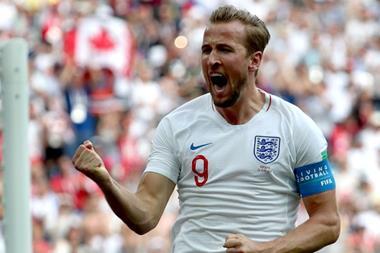
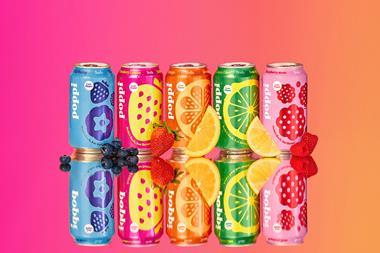
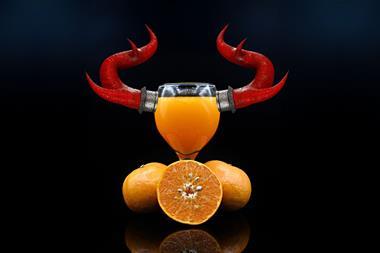
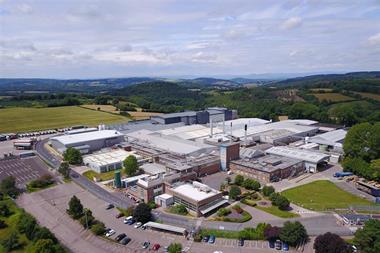
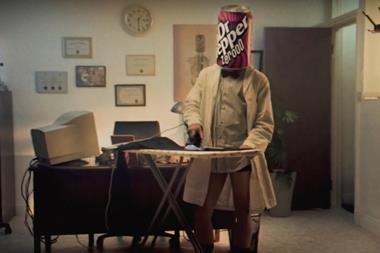






No comments yet